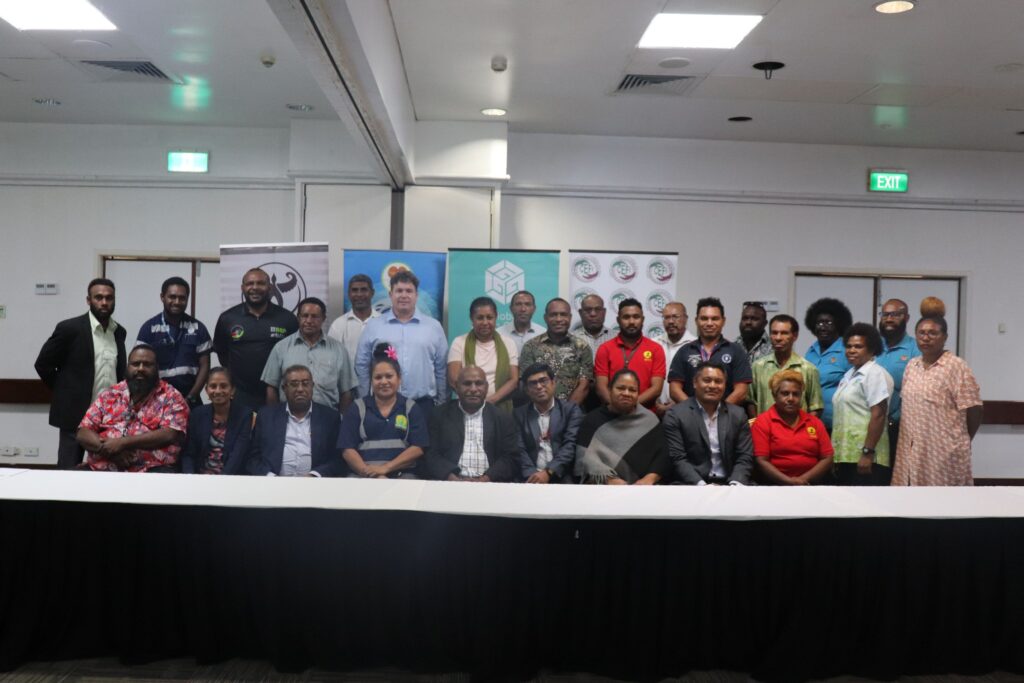Call to speak to our team
Contact our team via email
Mon - Fri: 8:00 - 4:30
We maintain normal hours
Call to speak to our team
Contact our team via email
Mon - Fri: 8:00 - 4:30
We maintain normal hours
TECHNICAL WORKING GROUP
Technical working groups are formed as and when required to support CEFI in the implementation of NFIS3 on topics that require wider consultation, coordination, and technical knowhow. On recommendation of CEFI, Steering Committee may organise technical working group under specific terms of reference. The technical working group members consist of practitioners, academicians, and subject experts. The technical working groups will, as per the terms of reference, assess the market developments, recommend policy solutions, support FSPs.
ENABLERS AND DRIVERS
Active partnerships with and coordination amongst various stakeholders from private and public sector are required for the successful implementation of NFIS3. These stakeholders share common vision to achieve financial inclusion and provide sector-based perspectives and resources. Based on the role each play in the implementation of the strategy; the stakeholders are organized as Key Enablers and Key Drivers.

KEY ENABLERS
Key enablers to the strategy are the critical participants who have control and authority over outcomes that build an enabling environment for financial inclusion. The role of the enablers is to set policy goals, provide enabling regulatory environment, effectively supervise, adequately resource and aid financial infrastructure.
The Key enablers identified are;
Government leadership and commitment is an essential requirement for the success of NFIS3. The role of the Government is to set the policy goals, develop the required infrastructure, address market failures and provide incentives to achieve financial inclusion. With limited funding CEFI is unable to fully capitalize and carry out its mandated functions and there is a question of its sustainability into the future. The Government as a key enabler should seriously look into making annual budget appropriations for CEFI to sustain its operations. Government departments shall ensure that the vision and mission of the NFIP and this strategy to be reflected as and where relevant in the department’s activities.
Key Government Departments such as the Department of
Treasury, Department of National Planning and Monitoring, Department of Finance, Department of Education, Department of Community Development and Religion, Department of Provincial and Local Government Affairs, Department of Commerce and Industries and Department of Agriculture and Livestock play an enablers role in achieving the NFIS3. Provincial and Local Level Governments also play an important role for extending formal financial services to the last mile by integrating financial inclusion goals into their planning process.
A progressive regulatory environment is essential to expand financial inclusion. The regulatory environment shall facilitate innovation, competition and protection. The lead enabler is the Central Bank mandated to ensure financial system stability. National Payment System (KATS and REPS) and customer due diligence requirements shall be conducive to reach more unbanked/underserved population. For promoting digital financial services, the active involvement from National Information and Communication Authority (NICTA), which regulate the telecommunications sector is important. The availability of affordable means of communication is the backbone for DFS. Other regulators such as The Insurance Commission, Investment Promotion Authority (IPA) and ICCC plays crucial role under their respective mandates for actively promoting financial inclusion.
The presence and engagement of resource companies in the remote rural communities can be leveraged for expanding financial inclusion. Along with the large resource development projects these companies are also involved in associated “enclave developments” which employ significant numbers of low-income men and women. The companies and agencies working in this sector can be utilized to improve the uptake of formal financial services especially DFS and to offer financial literacy. Mineral Resources Authority has significantly contributed to the previous strategy and is a key enabler for NFIS3.
Commodity boards can also be utilized through active coordination for financial inclusion.
SME Corporation is mandated to facilitate the growth and development of Micro, Small & Medium Enterprises in PNG creating a vibrant economy and thereby contribute to financial inclusion.
The industry bodies’ role is to bring in affordable and accessible financial products and services to a wider population and set in standards for service delivery.
Development partners are the catalyst to implement the financial inclusion strategy. The development partners are capable of providing financial and technical resources for the successful implementation of the strategy.
I-COMIT
While recognizing the important contribution of FSPs in providing every individual access to quality, affordable financial services, NFIS3 is committed to harness the potential of FSPs in achieving the Financial Inclusion Targets. I-COMIT is a set of measurable commitments by the financial service providers to achieve the financial inclusion targets and there by contribute to sustainable and inclusive economic growth in PNG.
I-COMIT is the commitment signed by FSPs to agree to partake in creating an ecosystem to achieve NFIS3 objective by steering the key drivers. I-COMIT is guided by the principles of Accountability, Competition and Transparency
(ACT).
Each FSPs will be encouraged to sets its own targets aligned to their business projections and commit to be accountable to the Financial Inclusion Targets (FIT) on a set timeline.
The commitments are to
Machine, and harness technology to increase access to financial products and service (internet/mobile banking).
M/SMEs and Agriculture sector.
CEFI as secretariat to NFIS3 will provide support services to the participating FSPs to achieve I-COMIT and including;
CEFI’s key role is to coordinate, advocate and monitor financial inclusion activities including coordinating stakeholder dialogue towards responsible financial service delivery and service quality, encourage innovation and strengthen financial sector industry development.
Head Office:
Third Floor, Credit Corporation Building, Cuthbertson Street, Port Moresby
Phone: +675 322 5300
Email: info@thecefi.org